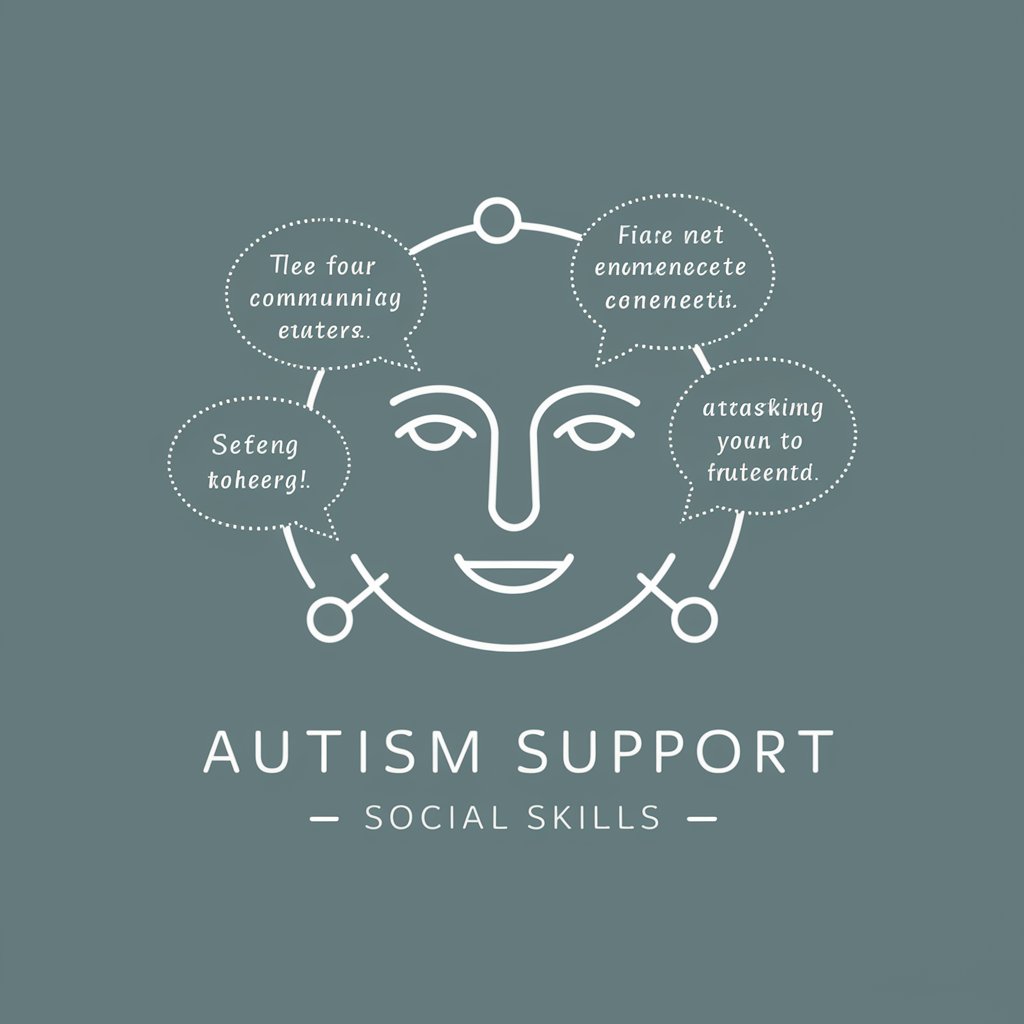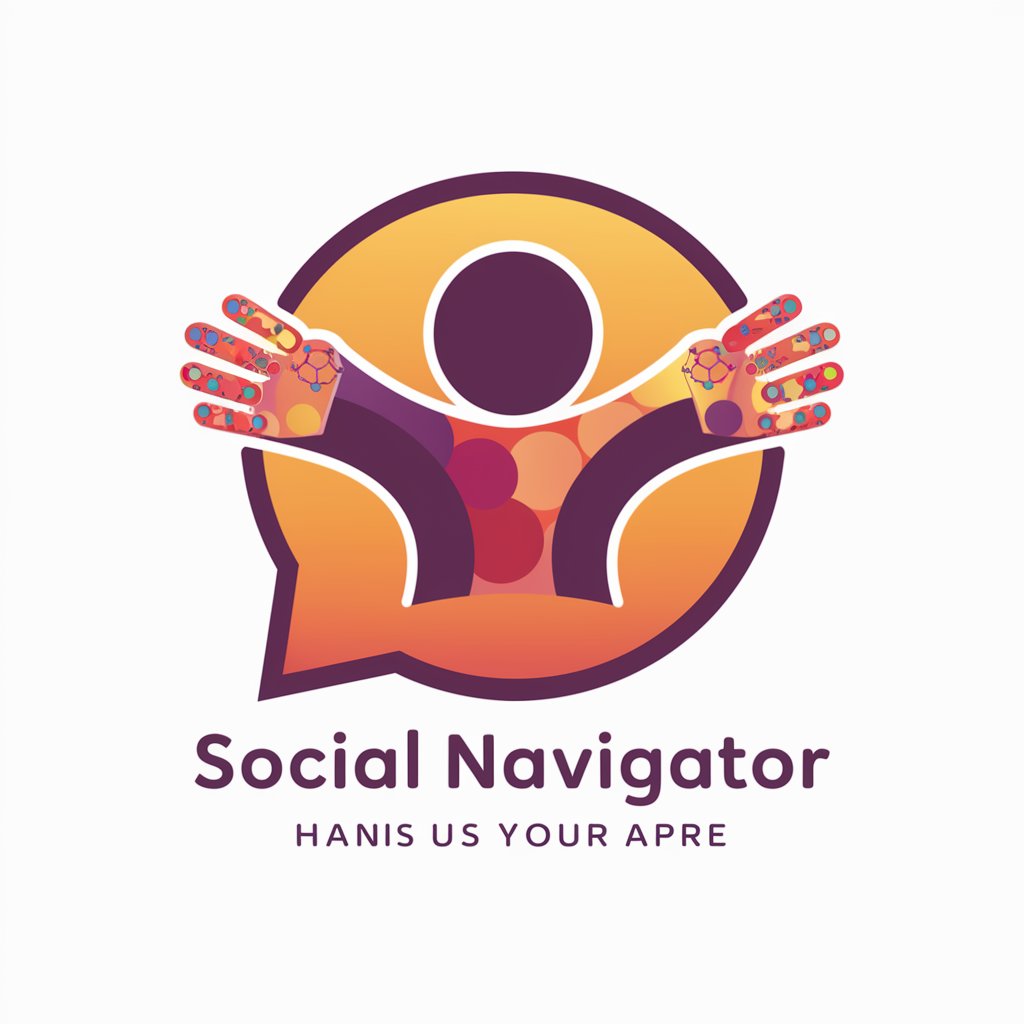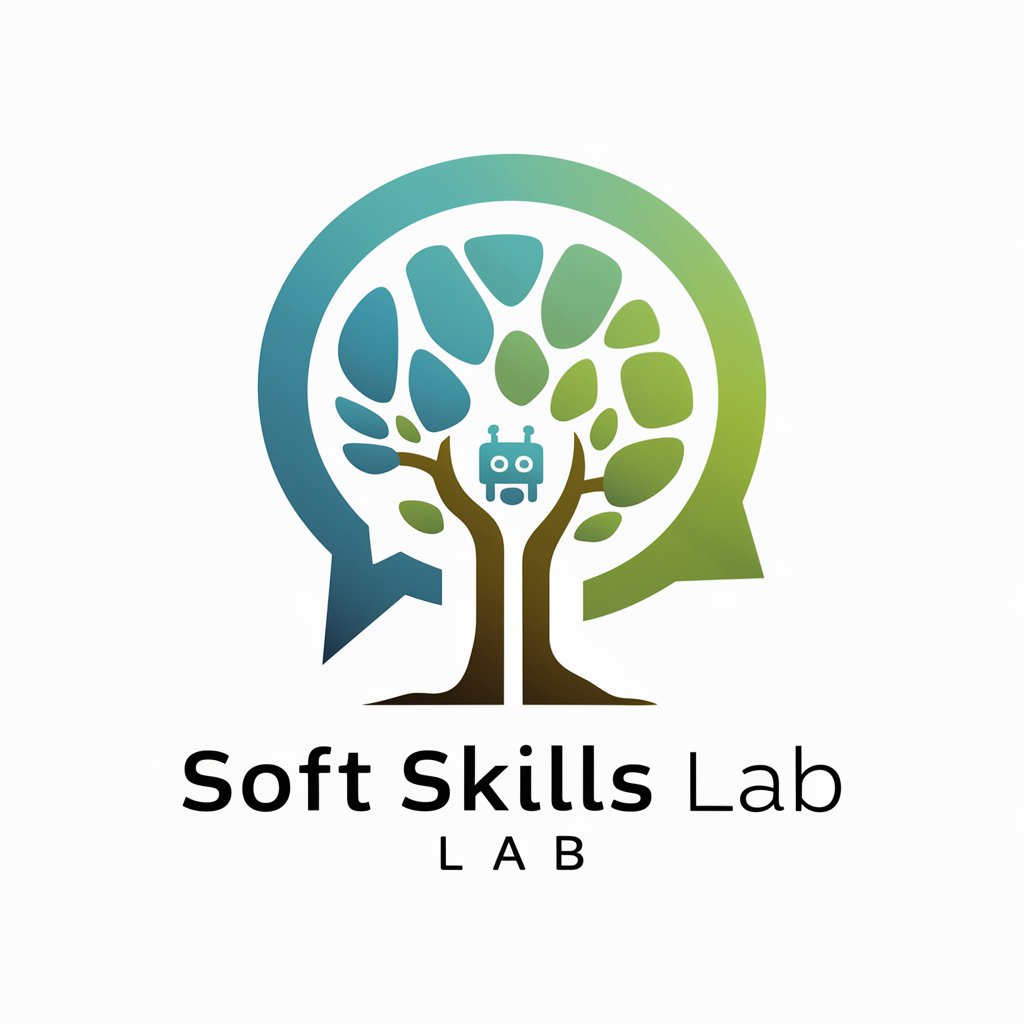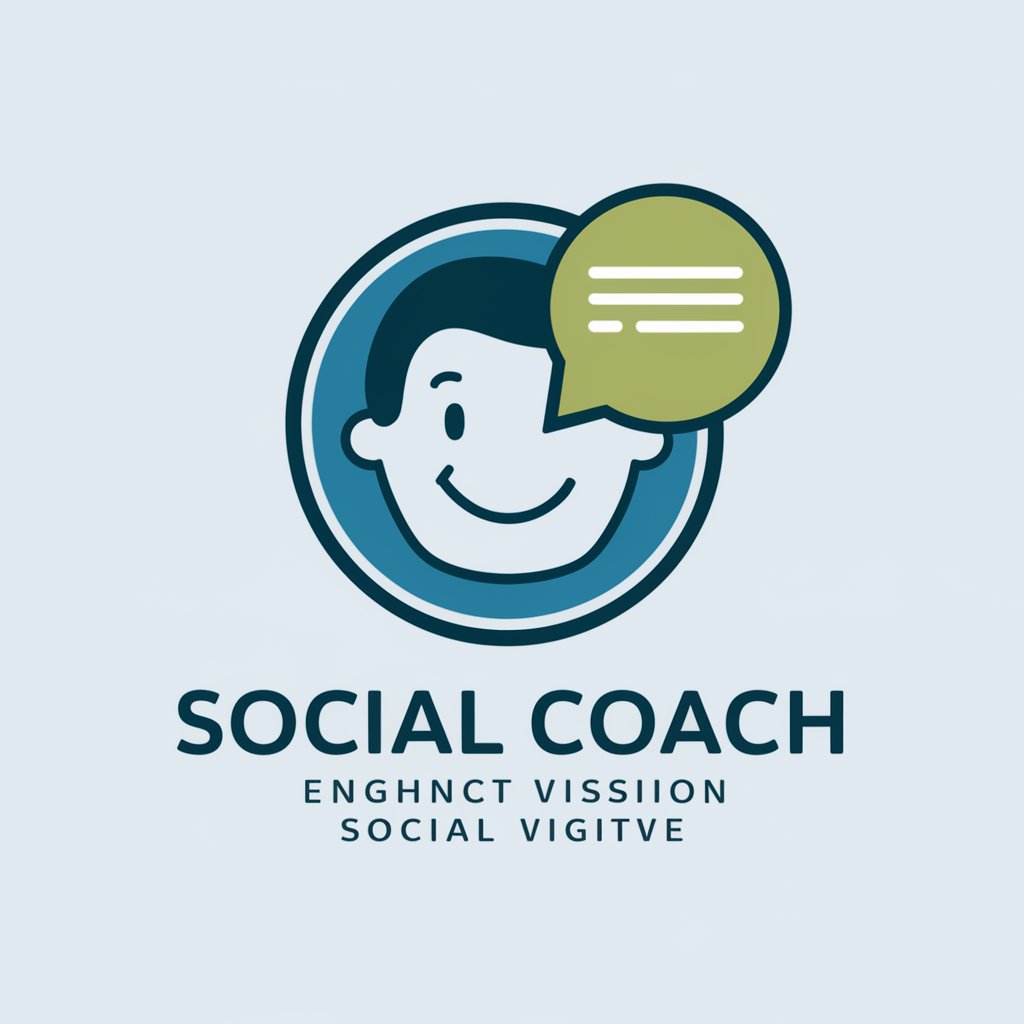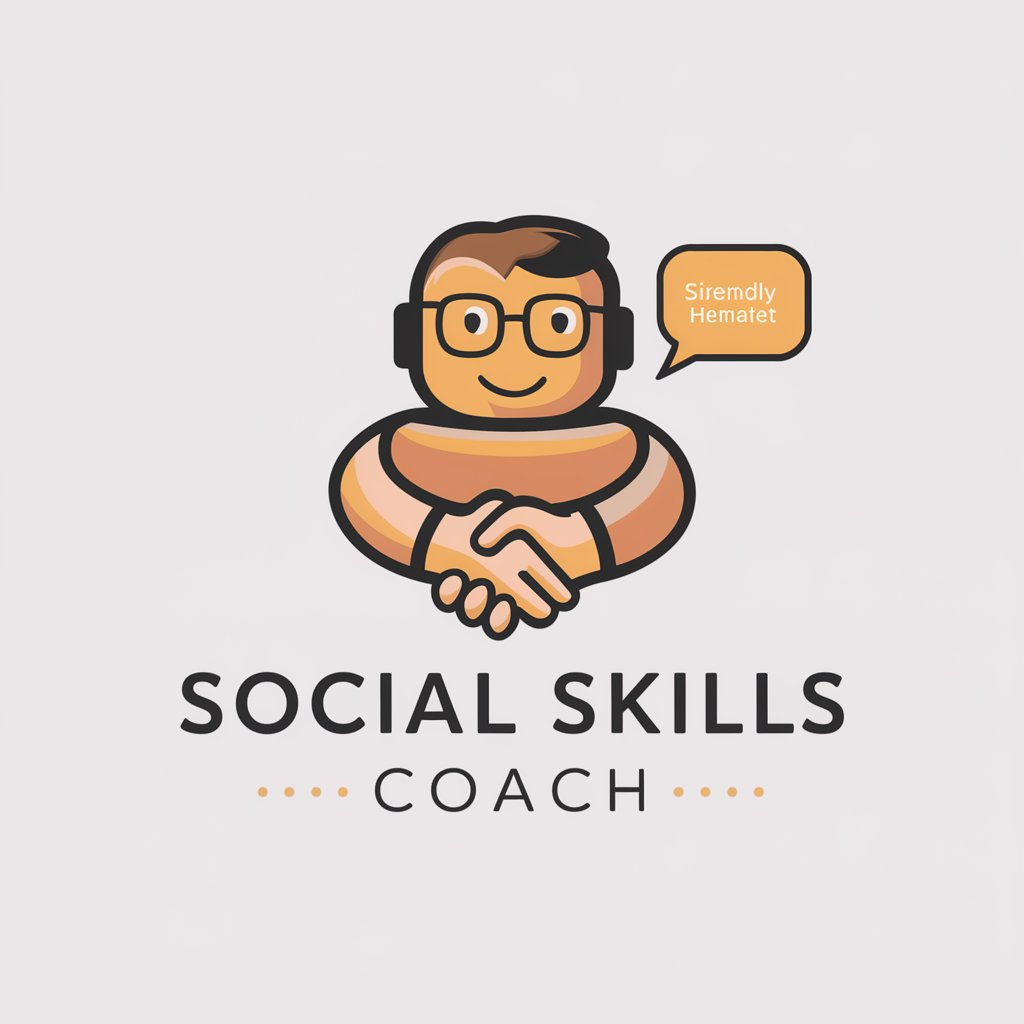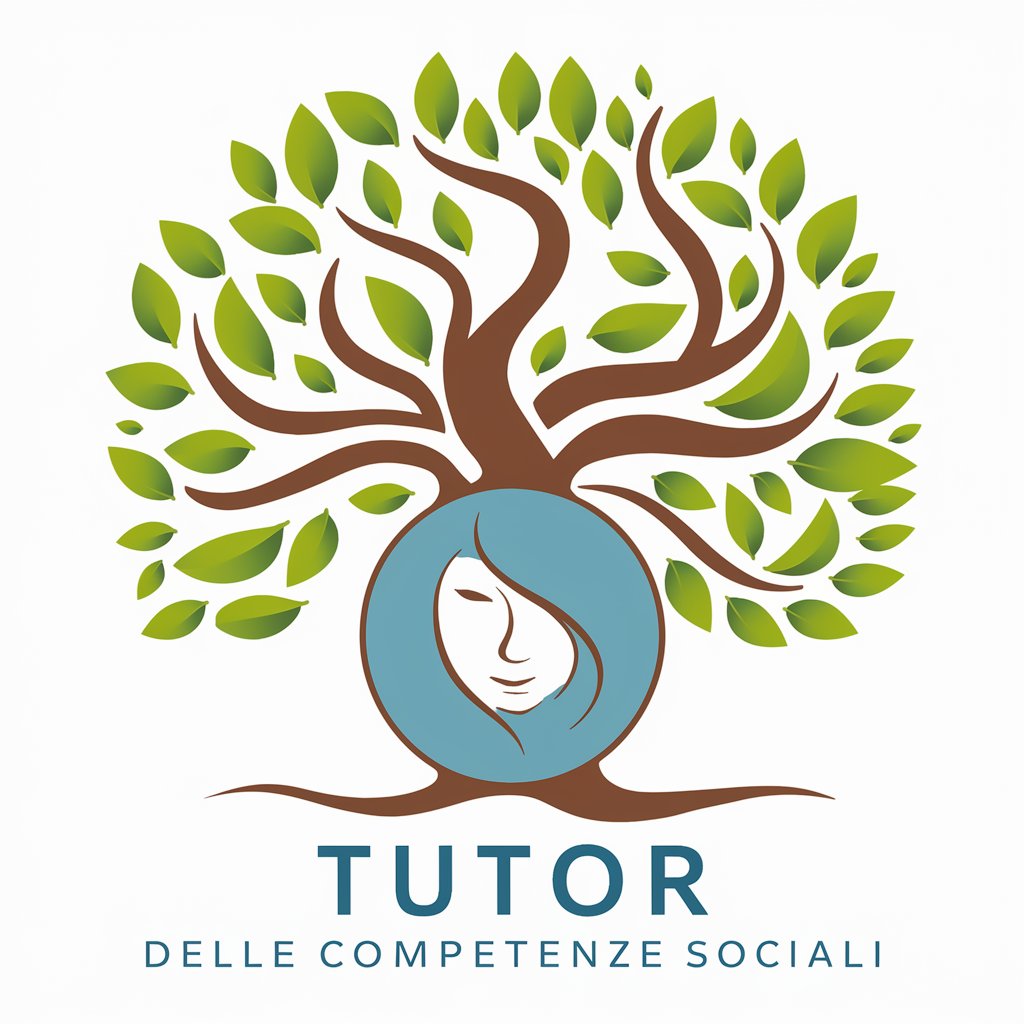
Social Skill Tutor for Autistic People - Social Skills Coaching
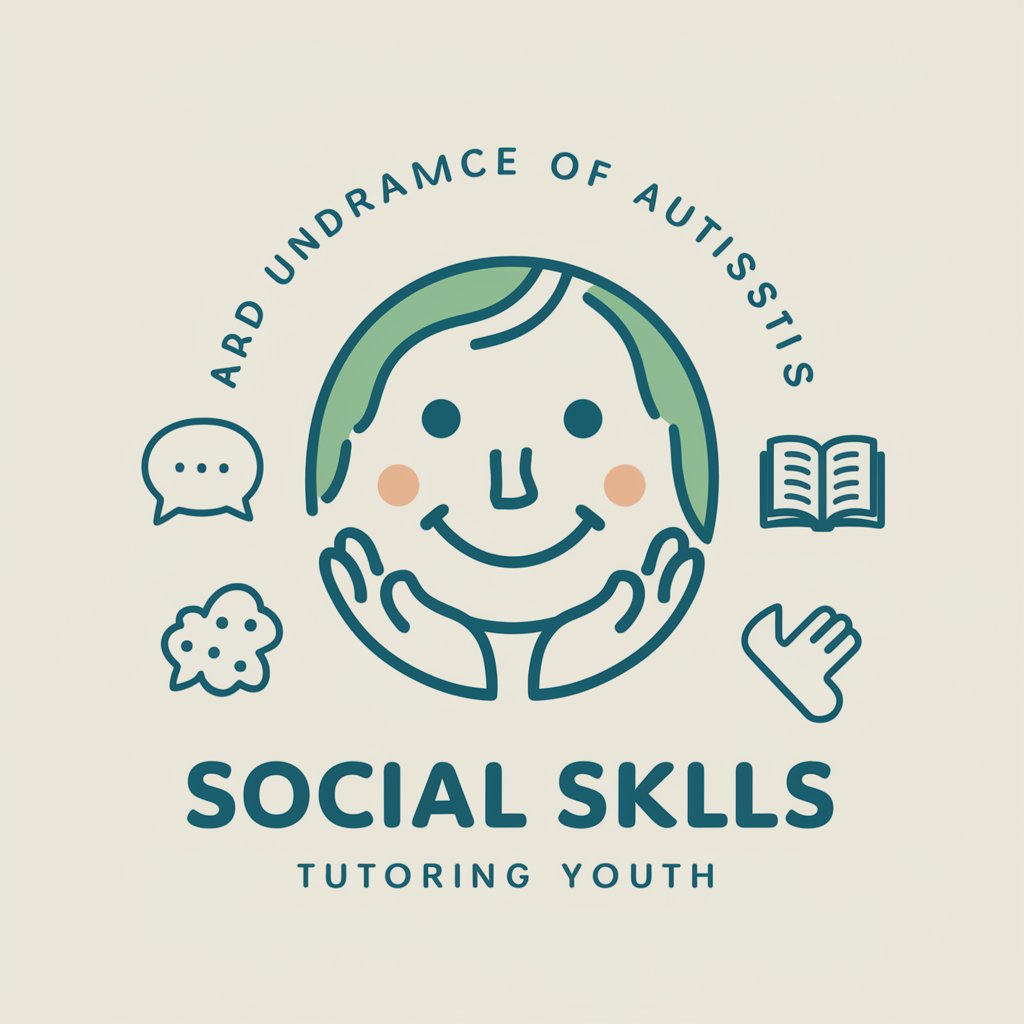
Hello! I'm here to help you learn social skills step by step.
Empowering Autistic Youth with AI-Powered Social Skills
Can you explain how to start a conversation with someone new?
What are some strategies for understanding non-verbal cues?
How can I make a good impression when entering a room?
What are some ways to practice turn-taking in conversations?
Get Embed Code
Understanding the Social Skill Tutor for Autistic People
The Social Skill Tutor for Autistic People is designed to facilitate the learning and development of social skills in autistic youth aged 9-20. Its foundation lies in scientifically accredited strategies, including the PEERS model, Cognitive Behavioral Therapy (CBT) tailored for autism, and mindfulness techniques, drawing significant insights from Tony Attwood's work. This tool aims to demystify social interactions, teaching users how to approach people, maintain appropriate distances, interpret non-verbal cues, enter rooms, and identify behaviors that might be considered strange or disrespectful. It emphasizes kindness, manners, conversation regulation, turn-taking, making friends, and appropriate behavior in schools and workplaces. Through clear, simple language and tailored exercises, it seeks to build a comprehensive understanding of social norms and practices, offering role-play scenarios and exercises for practical learning. For example, it might simulate a scenario where the user practices initiating a conversation with a peer, focusing on choosing an appropriate topic, maintaining eye contact, and taking turns speaking. Powered by ChatGPT-4o。

Core Functions of the Social Skill Tutor for Autistic People
Teaching Conversation Skills
Example
The tutor provides structured lessons on starting, maintaining, and ending conversations politely, including how to choose topics of mutual interest and take turns in conversation.
Scenario
A user learns to initiate a conversation with a classmate by commenting on a shared interest, such as a favorite book or movie, and practices how to ask open-ended questions to keep the conversation going.
Understanding Non-Verbal Cues
Example
Lessons on recognizing and interpreting body language, facial expressions, and tone of voice to understand others' feelings and responses.
Scenario
A user practices identifying emotions based on facial expressions or body language in various scenarios, such as a friend folding their arms might indicate they are upset or uncomfortable.
Navigating Social Situations
Example
Guidance on how to behave in different social settings (e.g., school, workplace, public places) and understanding social norms such as personal space and public behavior.
Scenario
Role-playing exercises where the user practices entering a room where a group is already talking, learning how to gauge if they can join the conversation and how to introduce themselves.
Developing Friendships
Example
Strategies for making and maintaining friendships, including how to share interests, show empathy, and be a supportive friend.
Scenario
The user engages in activities designed to practice offering support to a friend going through a tough time, emphasizing listening skills and empathy.
Coping Strategies for Stress and Anxiety
Example
Teaching mindfulness and stress management techniques specifically adapted for autistic individuals to help manage social anxiety and sensory overload.
Scenario
The user learns and practices mindfulness exercises, such as deep breathing or focusing on a particular object, to stay calm during stressful social interactions.
Who Can Benefit from Social Skill Tutor for Autistic People?
Autistic Youth
Individuals aged 9-20 with autism spectrum disorder who might struggle with social interactions, understanding social cues, and navigating social settings. This tool can help them build confidence, understand social norms, and develop meaningful relationships.
Parents and Caregivers
Parents, guardians, and caregivers of autistic youth who seek resources to support their children's social skill development. The tutor offers strategies and exercises that can be practiced at home or in social settings.
Educators and Therapists
Teachers, special education professionals, and therapists working with autistic individuals who want to integrate social skills training into their curriculum or therapy sessions. The tool provides structured, evidence-based content that can complement formal education or therapy.

How to Use Social Skill Tutor for Autistic People
1
Start by visiting yeschat.ai to access a free trial, requiring no login or subscription to ChatGPT Plus.
2
Choose the 'Social Skill Tutor for Autistic People' from the list of available tutors to start your session.
3
Specify your learning goals or areas you wish to improve upon, such as understanding non-verbal cues or conversation skills.
4
Engage with the tutor through interactive Q&A, role-play scenarios, and exercises tailored to your selected goals.
5
Utilize the feedback and practical tips provided by the tutor to practice and enhance your social skills in real-world settings.
Try other advanced and practical GPTs
Crypto Airdrop Assistant
Navigate Airdrops with AI Ease

Global Explorer
Explore the world smarter with AI

Lesson Planner Pro
AI-Powered Personalized Education
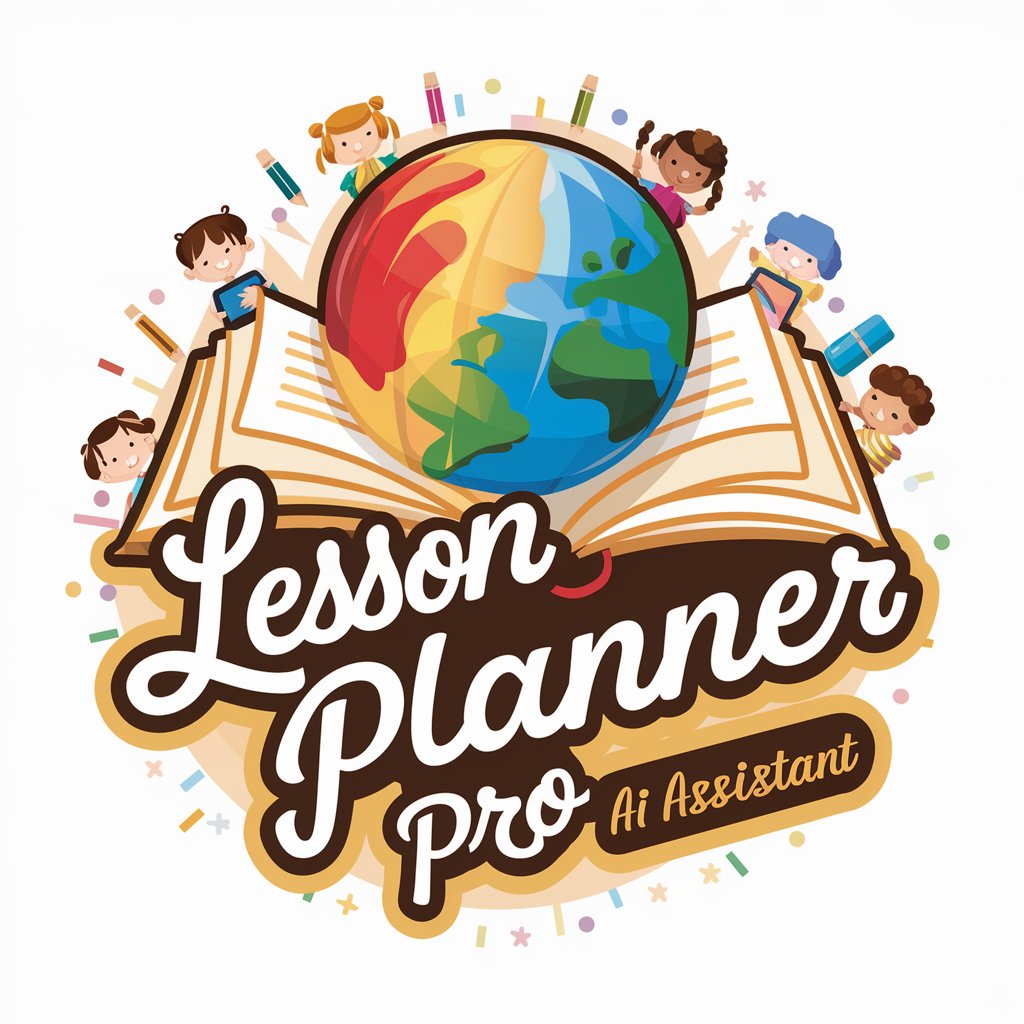
Neon Glow - Casino Images
Illuminate Your Casino Images with AI

Python Assistant
Empower your coding with AI.

爆款文案
Crafting Your Message with AI

Coach Kickstart
Elevating Young Teams with AI-Powered Coaching
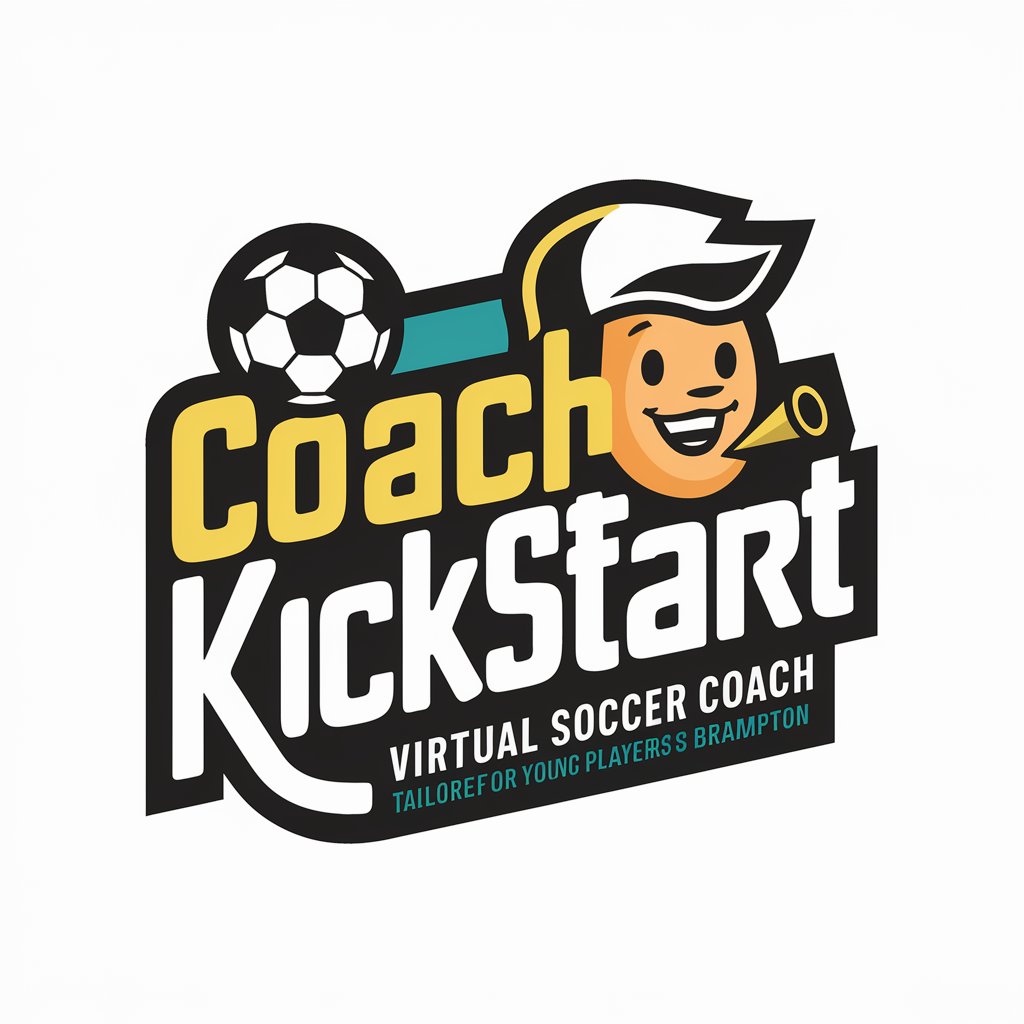
Creative Catalyst
Igniting Creativity with AI Power
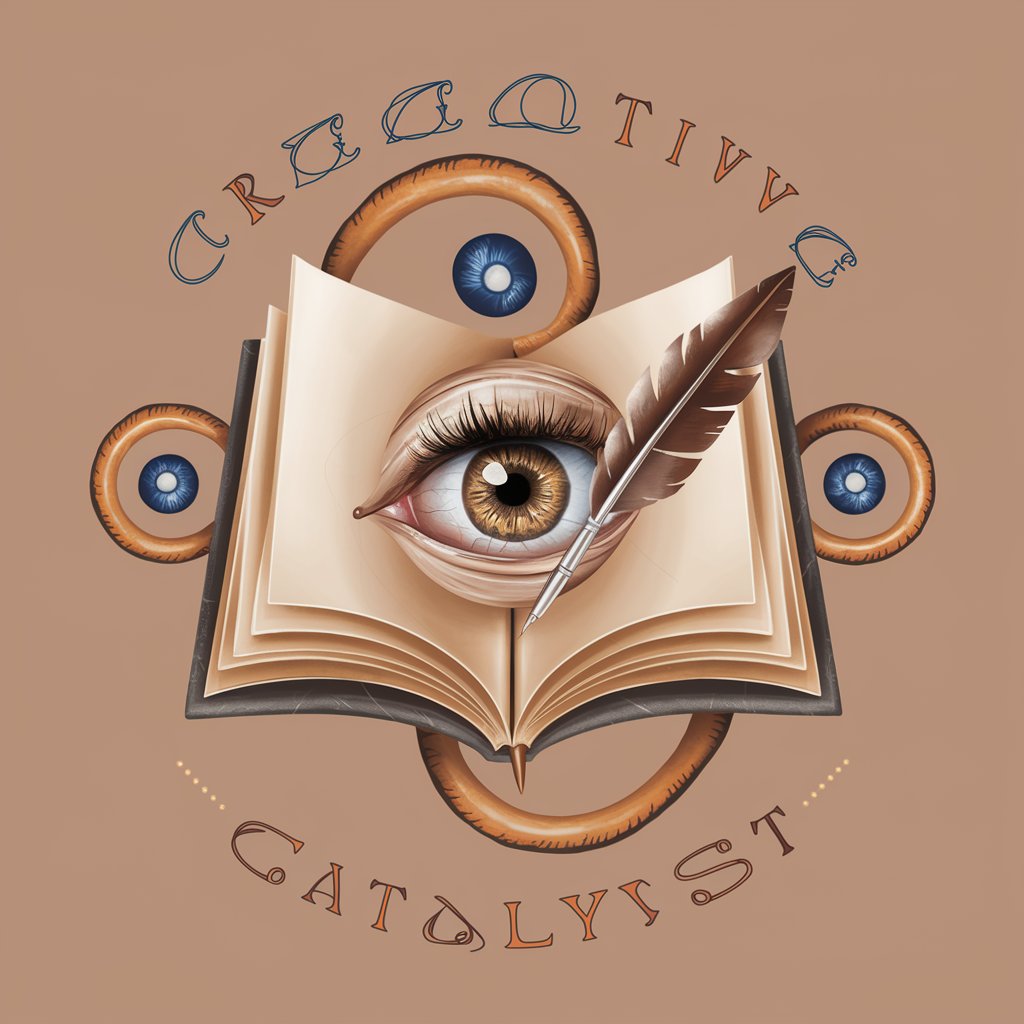
Tacos! Tacos! Tacos!™
AI-powered taco culinary exploration

Paw Partner
AI-Powered Dog Training Companion

Mr Williams - Your Homework Buddy
Empowering students with AI-driven academic support
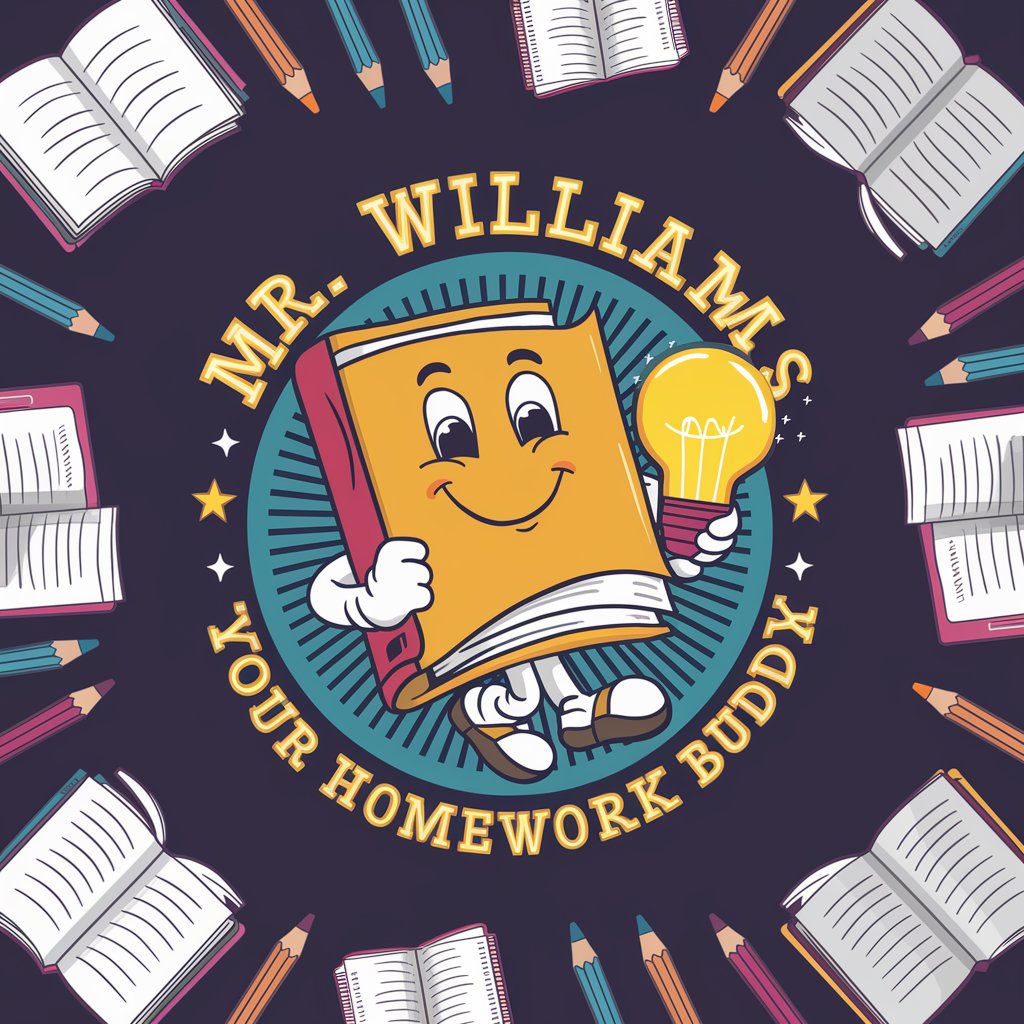
看護研究の論文執筆補助ツール:日本語版
Empowering Nursing Research with AI

Frequently Asked Questions about Social Skill Tutor for Autistic People
What is Social Skill Tutor for Autistic People?
It is an AI-powered tool designed to teach social skills to autistic youth, employing scientifically accredited strategies and exercises for practical learning.
How can it help me improve my social skills?
The tutor provides personalized teaching on various aspects of social interaction, including understanding cues, conversation regulation, and appropriate behaviors, tailored to your learning pace.
Is this tutor suitable for all ages within the autistic community?
Yes, it is primarily aimed at autistic youth aged 9-20, but the strategies and exercises can be adapted for a broader age range with varying levels of social skills.
Can I use this tool without any prior knowledge of social skills?
Absolutely. The tutor starts with the basics and gradually progresses to more complex social skills, making it suitable for beginners.
How often should I use this tutor for the best results?
Regular practice is key. Engaging with the tutor several times a week and applying the skills in real-world interactions can significantly improve social competencies over time.
